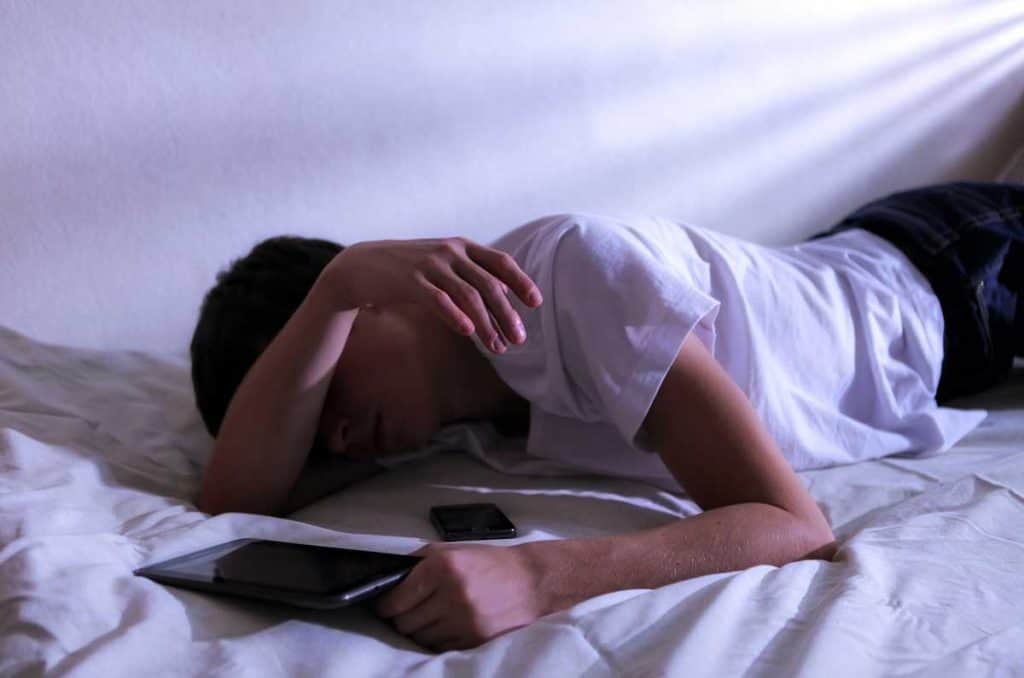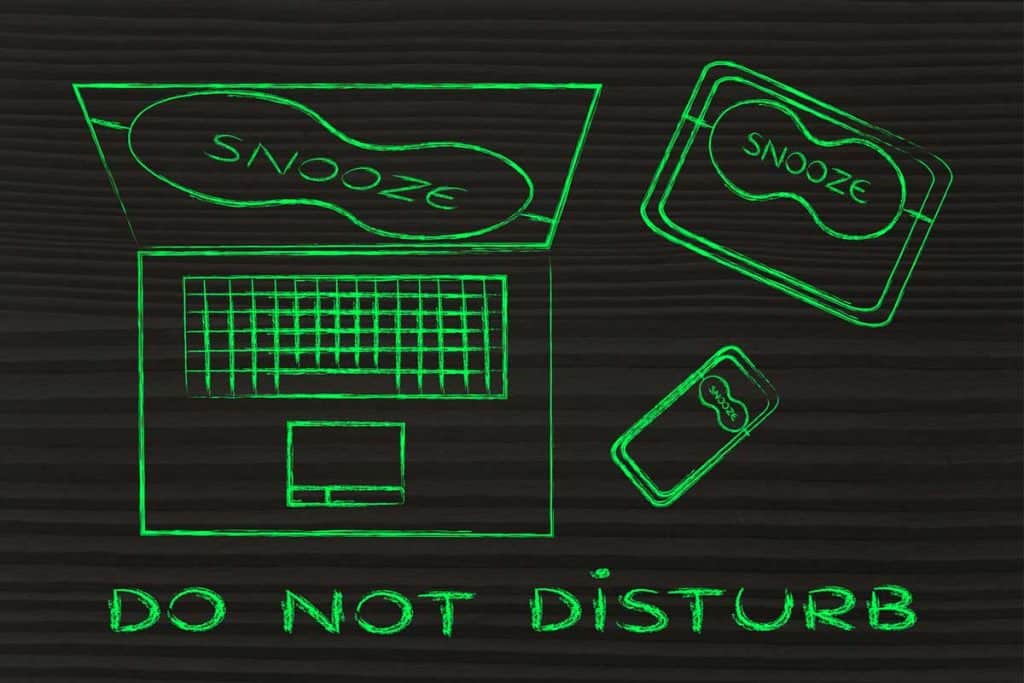
When they wake up in the morning, logging in to Facebook and Instagram or checking their emails is the first thing they do. Are you also guilty of this? In our article, this is how electronics affect sleep.
There are 18 million Australians active in social media with an average spending time of 18 hours for personal and work use. Most of the population admit to scrolling on their feeds even when they’re on the bed to sleep.
Every day, people open their computers, TVs, and mobile devices to start their mornings or before turning in for the night. Children, teens, and professionals are among the top nighttime technology users and often risk sleeping late in the evening.

How electronics affect sleep
Getting early in our computers or stealing a glance on your phone has become a habit. People scroll down when they eat, take the toilet, or ride public transport. This addiction even at daytime can increase mental spike which further delays sleep at night. Here’s how electronics affect sleep.
Blue light and vs. melatonin
There are different ways electronics can disturb your slumber. Gadgets emit blue light which alerts your brain. Also, your body’s circadian rhythm is sensitive to light, especially with blue light. That same ray is known to slow down the release of melatonin, a hormone that regulated sleep.
Mental alertness
Electronics can keep your minds working and awake at night. The blue light, plus, visual-auditory sensory of your gadgets can further stir your brain’s activity. Being invested in a TV show or social media post and added exposure to blue light can make stay up longer until the wee hours of the morning.
Notifications disrupt sleep
Did someone ping you a message? Ringing notifications can make you alert and tense at a time when you should be relaxing. Receiving emails is an apprehensive and irritating matter because you ought to be away from work rest. SMS alerts or social media ring backs may cause heavy emotions especially when you’ve invested on the topic. It’s one way how electronics affect sleep.
Incites FOMO
FOMO is also known as the fear of missing out. Incites anxiety when you think you missed out on an exciting experience if you’re not present on an event or place. FOMO may lead as well to depression if you worry about it overnight. Being stressed, anxious, and depressed can induce insomnia and other chronic psychological conditions.
Decreases REM sleep
The rapid-eye-movement or REM stage during sleep happens to be the restorative phase of the sleep cycle. It helps the mind improve its learning and memory capabilities crucial to brain development. Loss of well-rested REM sleep may lead to brain fog and poor mental proficiencies.
We might not feel it directly, but technology can adversely affect sleep because it stimulates the brain further. In the long run, it can cause chronic sleep disorders and rest deficiency. It’s important to initiate a digital curfew for children and adults alike. In general standards, gadgets should be placed away 30 minutes before sleeping.

Electronics affect sleep – learn how to improve sleep
Excessive electronics affect your sleep and is attributed to poor habits – and a hard one to curb. But making adjustments to your routine is necessary to improve sleep. If you have a hard time keeping your hands off your phone, here’s what to do.
Shut your electronics 30 minutes before bed
Planning to sleep well at night? Unwind on a transition period for 30 minutes. If you find it hard to do, you can put down your gadget at least 15 minutes before bedtime.
Instill a curfew
Disconnect your kids from the TV, phone, or computer by instilling a techno-free curfew. For example, there will be no usage of gadgets from 9PM to 4AM the next day.
Substitute activities
Instead of being glued to your phones or computer, why not read a book or take a warm shower? Getting into light exercises can help the body prepare for sleep. During the day, it also helps to get a new hobby to avoid downtime and boredom.
Install a smart timer app on your phone
There are smart time management apps that record intervals on your phone and computer activity. For example, it can record how long you open your social media channels or which websites you stay the longest. Some apps block websites that distract when you work and sleep also.
Improve work-life balance
Always make it a point to ditch work when you arrive at home. Keep it out of mind and sight to avoid getting anxious from getting an email from your colleagues or boss. You can tell them in the office nonchalantly that you limit contact outside the office. Save your home or bedroom for family or leisure time.
If you work from home, make sure to separate your home office from the bedroom. If you can’t, instill better time management habits or discipline to do away from the computer.
Limit blue light and technology use in the bedroom
Start changing your sleep environment by limiting or changing gadget usage in the bedroom. You can do so by:
- Keeping gadgets 15 inches away from your face when you rest
- Charging your mobile away from the bed
- Lower the brightness of your devices
- Wear glasses
- Mute notifications
- Allow relaxing content to be played over the background
Meditation – turn FOMO to JOMO
The fear of missing out is heightened by engaging in social media. Before you feel sad about not being able to attend an event or get the vacation your friend was offered, try to meditate. Take deep breaths and ask yourself:
- Is what am I seeing true or just a depiction of what people want to convey?
- Will my world end if I don’t join my friends?
- What will it cost me if I did join them?
Turn your FOMO to JOMO (joy of missing out) with meditation.
Excessive usage of electronics affects your sleep at night. These tips can curb your addiction to electronics. Always prioritize sleep and aim to have at least seven hours of good slumber.



